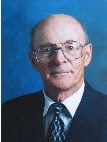Scientific Evidence and Global Warming
Recently we heard from "scientists" attending the Brussels conference pontificating on the warming of our planet due to greenhouse gases. The late Roy Walford in his textbook The 120 Year Diet (pp. 33-37) states evidence that falls into 4 categories: testimonial, argumentative, correlational and experimental. However the purpose of this blog is not to discuss evidence in relation to medicine as Walford did, but rather to comment on the current political issue of global warming, greenhouse gases, Kyoto, the environment etc. I will, however, use Walford's examples so the reader can appreciate the difference between these four categories.
The least reliable of Walford's 4 categories is testimonial: the kind doctors often use and call clinical anecdotes. Such scientists -frequently doctors - preface their remarks with "In my clinical experience...." and then they give their conclusions.
The second category - argumentative - is the type lawyers would use although alsp very common in the medical field, especially by gerontologists. For example they rationalize: we know that free radicals are known to cause damage to biological macromolecules like DNA (our genes) causing mutations which can lead to cancer and if they attack protein molecules (like collagen) they produce cross linkages resulting in skin wrinkles and loss of flexibility in our joints. All of these are dreaded symptoms of the aging process. In addition, Vitamins like C and E and minerals like zinc and selenium and others are known as free radical scavengers (antioxidants). Gerontologists argue that taking such nutrient supplements should neutralize the damaging effects of free radicals in the body, and therefore reduce the cancer rate and/or retard the aging process. Unfortunately there is very little scientific evidence that these antioxidants actually do reduce the cancer rate or retard the aging process.
The rationale for the third category: correlation - is that when two things occur together all or most of the time, there may be a direct causal relationship between them. As Walford further remarks, the correlation can be "very seductive". I recall in the late 1970's while attending a medical lecture given by a British scientist who showed us a graph on which were plotted over time the incidence of heart attacks and the sale of colored televisions in England - this graph showed a direct correlation, between the sale of colored TVs and the incidence or heart attacks. Indeed, in one of the years when there was a dip in the number of TVs sold, there was also an identical dip in the rate of heart attacks! Insurance companies use similar data in calculating their premiums and/or adjudicating their claims.
Fourth or final category: repeatable experimentation. This is the double blind experiment with controls - moral and other factors, it may be difficult to perform such scientific experimentation. I recall reading that doctors did not have the gold standard evidence when they began coronary bypass surgery - only argumentative evidence. Recent correlational evidence suggests that coronary bypass surgery may indeed not prevent a person from getting future heart attacks. I still don't think anyone has done this scientific experiment.
In a related complaint of angina - even excluding the placebo effect - some medical researches have found no difference in symptomology with the standard coronary bypass surgery and the fake operation in which the sternum was separated and the wound closed up again with no surgery to the coronaries!
Now to global warming. It is possible that many of the delegates attending the recent global environment conference in Brussels were formulating policies based on evidence which was not experimental. Using Walford's categories, it would appear that most of their policies were based on evidence which belonged to the correlation category, maybe some even belonged in the argumentative category. Here is the logic: it is my understanding that lawyers often use argumentative evidence in defence of their clients, and since many lawyers are politicians and since this Brussels-Kyoto conference was for both scientists and politicians, it is not unreasonable to assume that many lawyers would therefore be present at this Brussels conference. Since they use the argumentative-based approach in their legal profession in court, is it not reasonable to argue that they might also use it at this prestigious and costly Brussels conference?
I hope that the participants at this conference and those planning to attend the followup scheduled for later this summer will review the evidence they have, and categorize it, and then make a responsible interpretation when formulating their policies. In short, they should "do their homework and get their act together."
Footnote: Unless we can devise repeatable controlled experiments, we should be cautious in drawing conclusions and formulating policies from evidence which is not scientific. If not underway already, the biosphere like the one in Tuscon Arizona might be an ideal place to conduct such controlled scientific experiments on global warming. However the scientist would require a second biosphere as a control - one in which they do not introduce the environmental component they are studying. However it is more complicated than that. Since in the environment each component does not act separately it would require additional biospheres for each environment factors that one wishes to study. Actually it is even more complicated than that. Suppose the climatologist wishes to know what effect A has on global warming when factors B & C which are also at play are controlled separately or together or not at all. One quickly realizes that the permutations and combinations soon become astronomical, becoming a statistical nightmare. The fact that some of these experiments may take decades or even centuries to prove adds another dimension to the problem, and creates a dilemma for gerontologists studying life extension.


0 Comments:
Post a Comment
<< Home